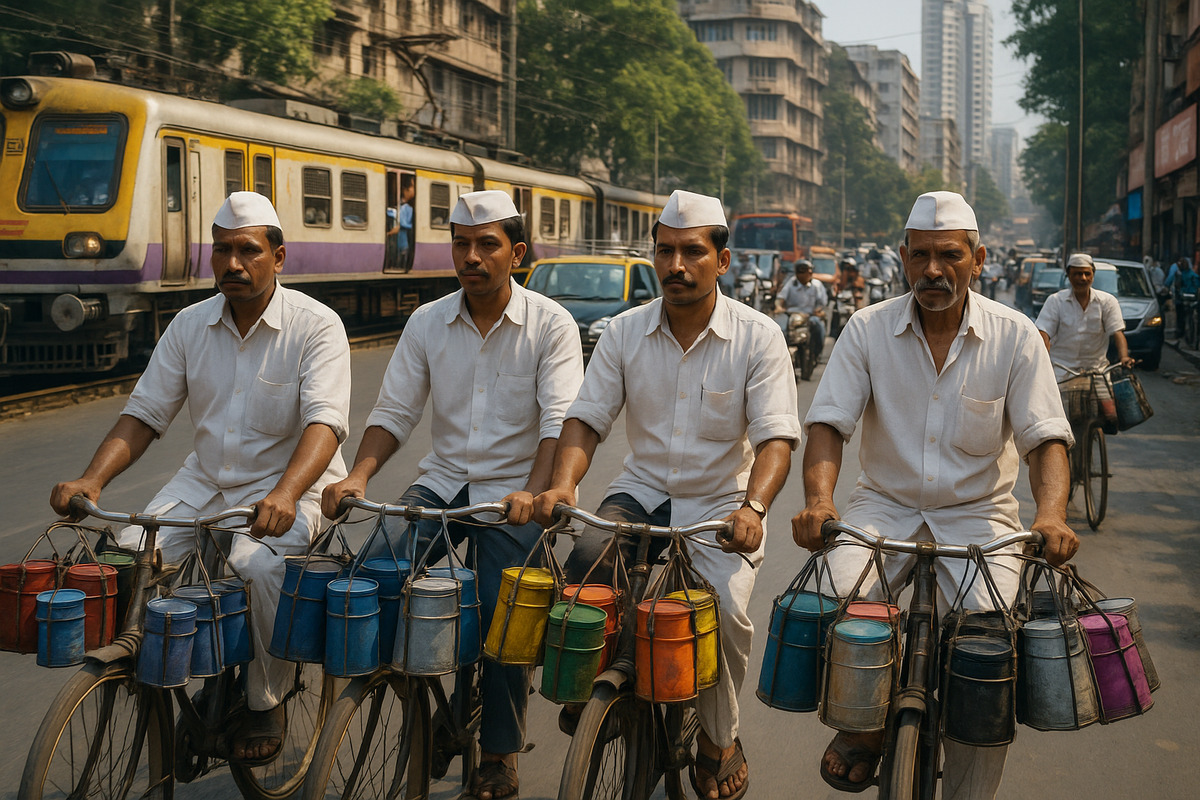Why Mumbai’s Dabbawalas Never Get Stuck in Traffic
Mumbai’s dabbawalas deliver 200K+ tiffins daily without tech or delays. Discover their Six Sigma system & what urban planners can learn from it.

Explore the time-tested logistics of Mumbai’s Dabbawalas—masters of urban movement. A SpotGenie Facts story on Indian transportation brilliance.
🍱 Opening Hook
In a world of GPS, Google Maps, and delivery apps, how do 5,000 dabbawalas deliver over 200,000 lunchboxes daily in Mumbai — without getting stuck in traffic?
📦 Fact 1: Human Algorithm at Work
Using color-coded tiffin boxes and unmatched synchronization, Mumbai’s dabbawalas have maintained a Six Sigma-level delivery accuracy — with almost no use of tech. Their system has been studied by Harvard Business School and is admired globally for its precision in chaos.
🚇 Fact 2: Mastering Urban Infrastructure
Dabbawalas exploit Mumbai’s local trains and bike routes, optimizing for human mobility over machine navigation. They adjust their routes based on weather, strikes, and traffic snarls through daily experiential knowledge — not algorithms.
🧞 SpotGenie’s Take
"Efficiency doesn’t always come in wires and waves — sometimes, it wears a white cap and carries lunch. The dabbawalas prove that knowing the road is as important as owning it. Smart parking or smart delivery — both need smarter people."
🅿️ SpotGenie
SpotGenie makes modern-day parking just as smooth. Whether you’re a dabbawala on a bike or a software engineer in a sedan, our QR-tag system ensures that people can reach you when needed — no traffic, no trouble.
Follow us on:
🅾 Instagram |
ⓕ Facebook |
𝕏 X |
▶️ YouTube |
🟢 WhatsApp
🧠 More SpotGenie Facts on Movement, Innovation, and India’s Roads
- Which Indian City Has the Most EV Charging Stations?
- QR Code Parking Fines – Bengaluru’s Smart Enforcement Leap
- India’s Traffic Signals Have a Gender Bias?
- ANPR Cameras in India – MoRTH’s Big Leap in Surveillance
- Get SpotGenie – Smart QR Stickers for Modern Urban Communication
This story is part of the SpotGenie Fact series — uncovering surprising truths behind how India moves, works, and communicates.



